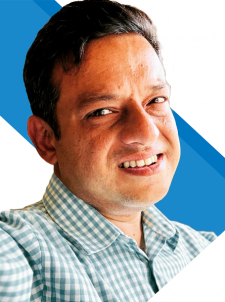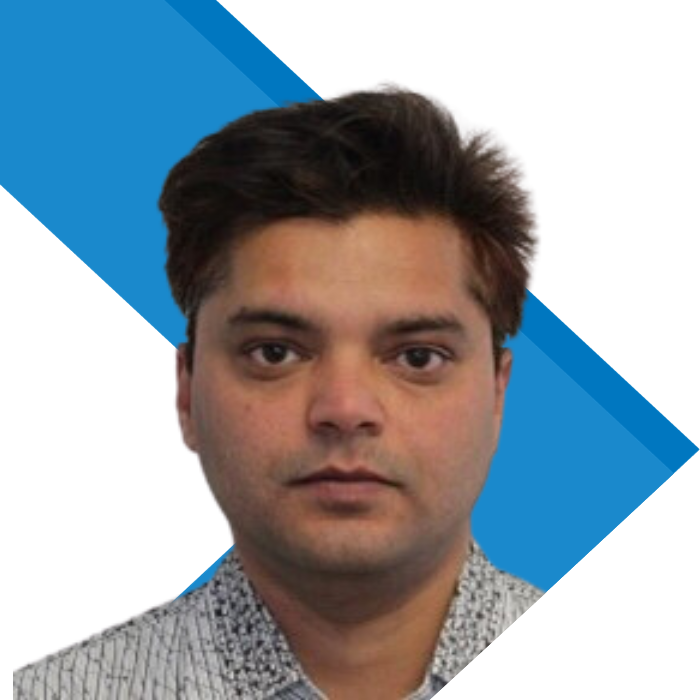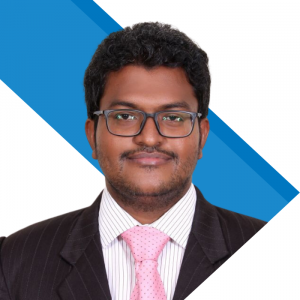Dr. Sibi Chakkaravarthy S
School of Computer Science & Engineering,
Associate Professor, VIT-AP University,
Andhra Pradesh, India
Title: Large Language Models: The next gen cyber weapons
Abstract:
Large Language Models (LLMs) have demonstrated their ability to generate high-quality, human-like text that can be indistinguishable from that written by a human. While this is a promising development for natural language processing, it also raises concerns about the potential misuse of these models. In particular, LLMs have the potential to be exploited as cyber weapons due to their ability to generate a wide range of content, including offensive and derogatory material. Malicious actors could use LLMs to spread disinformation, manipulate public opinion, and sow discord, among other things. For example, they could create fake news articles or social media posts that appear to be written by real people to sway public opinion on political or social issues. They could also use LLMs to generate targeted phishing emails or social engineering attacks that are highly personalized and difficult to detect. However, the specific methods and strategies for exploiting LLMs in this way are complex and varied, and require a deep understanding of the technology and its capabilities. This talk will cover the different aspect of how AI can be exploited with the current LLMs. It will delve into the technical details of how LLMs can be manipulated and the potential security implications of this. The audience will gain an understanding of the risks and challenges associated with LLMs and the need for strong security measures to mitigate their potential misuse.

Joy Mustafi
Founder Chairman, MUST Research, India
Title: Applications of Artificial Intelligence Research
Brief bio: Recognized among the Top 10 Data Scientists in India. Having 2 decades of experience in the corporate, research, and academic world. Collaborated with around 20 leading universities in India as visiting faculty. Supported around 15 start-ups and non-profit forums being on the board or as a consultant for data sciences. Having close to 100 patents and 50 publications in the Machine Learning space. Managed and led more than 700 practitioners in various organizations with respect to technical and professional guidance in the recent past. Acknowledged as Number 1 among the Top Data Science Influencers in India.
Dr. Mukesh Mishra
Department of Mechanical and Electrical Engineering Massey University, New Zealand
Title: Capturing the salient aspects of IoT research: A Social Network Analysis
Abstract:

Internet of Things (IoT) is integration of several technologies and communication solutions with many of the technologies reaching maturity stage and many are evolving. In recent years, IoT has emerged as one of the most exciting areas of research and innovation activity with huge transformative potential. Smart homes, smart vehicles, smart clothes, autonomous vehicles, smart agriculture and a host of other applications are dependent in various ways upon the maturation of IoT. Research in this area is getting more application oriented, expansive in scope with loci of research and innovation dispersed across academia, research institutions and industry. It is thus becoming a challenging as well as a useful exercise to know the structure and dynamics of this field. This work is focused on this issue; it tries to capture the intellectual structure of this field and research trends from quantitative and statistical analysis of research publications. Conceptual connections are constructed from linkages among keywords using tools and techniques of Social Network Analysis which is also used in constructing the conceptual framework for the study.

Prof. Subhrakanta Panda is currently working as an Associate Professor in the Department of Computer Science and Information Systems at the Birla Institute of Technology and Science Pilani, Hyderabad Campus. His current areas of interest and research are in Social Network Analysis, Blockchains and their Applications, Cloud Computing, and Software Testing. He is also currently motivated on Medical Analytics. His Ph.D. thesis is titled Regression Testing of Object-Oriented Software and received his PhD in 2016. He teaches Computer Programming, Object-Oriented Programming, Cloud Computing, and Database Systems. He has successfully supervised 2 Ph.D. students and Co-supervised 1 Ph.D student. He is currently supervising the work of 3 Ph.D research scholars. He has more than 40+ published articles, papers, and book chapters in various journals, conferences and edited book volumes. He has adapted the Indian edition of the Book, “Data Structures and Algorithms in Python by Goodrich, Tamassia, Goldwasser”.


